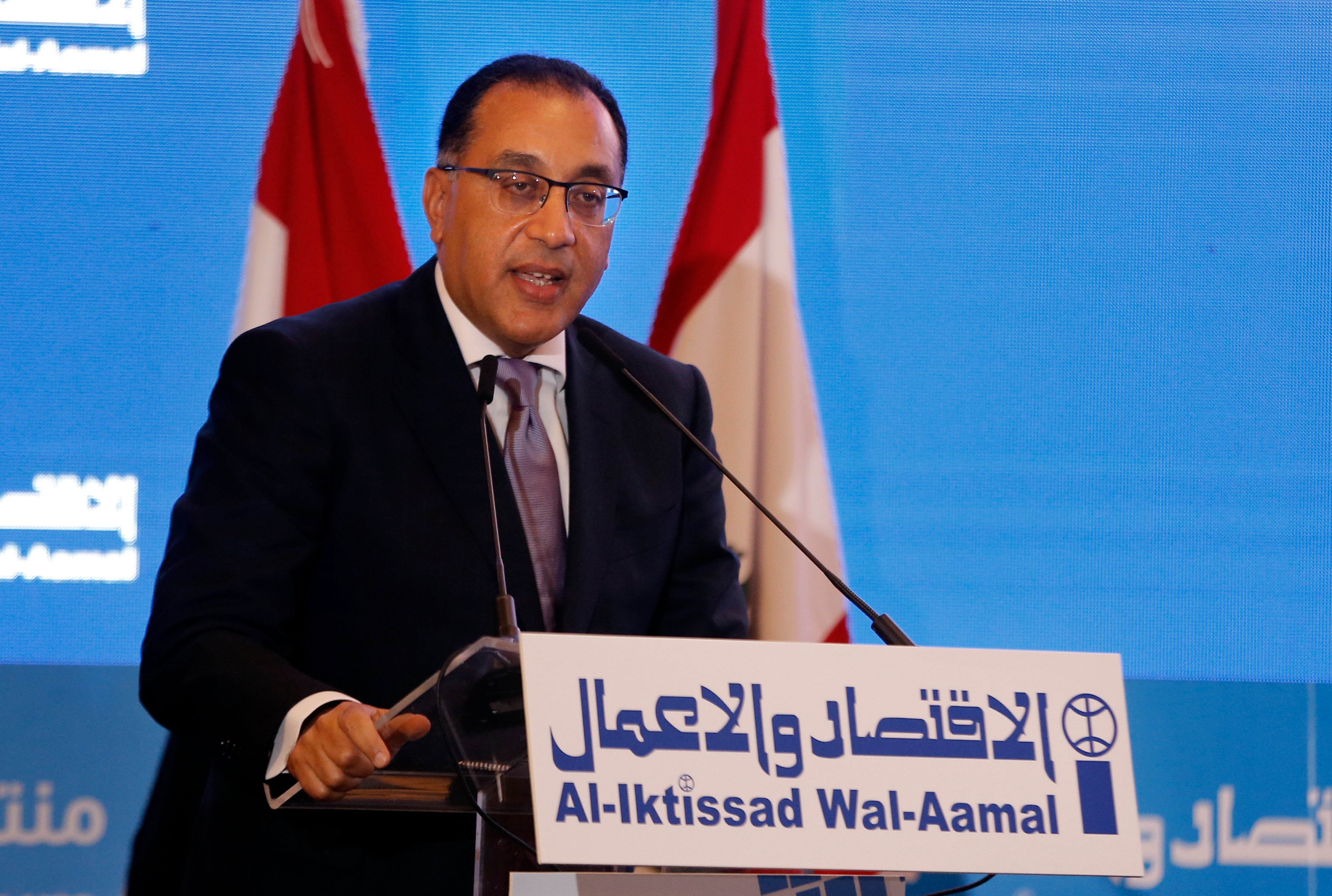Egypt's premier visits Libya to discuss trade, other ties
Egypt’s prime minister has arrived in Libya’s capital to discuss trade and other ties with the newly appointed government

Your support helps us to tell the story
From reproductive rights to climate change to Big Tech, The Independent is on the ground when the story is developing. Whether it's investigating the financials of Elon Musk's pro-Trump PAC or producing our latest documentary, 'The A Word', which shines a light on the American women fighting for reproductive rights, we know how important it is to parse out the facts from the messaging.
At such a critical moment in US history, we need reporters on the ground. Your donation allows us to keep sending journalists to speak to both sides of the story.
The Independent is trusted by Americans across the entire political spectrum. And unlike many other quality news outlets, we choose not to lock Americans out of our reporting and analysis with paywalls. We believe quality journalism should be available to everyone, paid for by those who can afford it.
Your support makes all the difference.Egypt’s prime minister arrived in Libya s capital Tuesday to discuss trade and other ties with the newly appointed government, his office said.
Prime Minister Mustafa Madbouly is the most senior Egyptian official to visit Libya since the oil-rich country plunged into chaos in 2011. A NATO-backed uprising that year toppled longtime ruler Moammar Gadhafi, who was later killed.
Madbouly landed at Tripoli s Mitiga International Airport with 11 members of his Cabinet and trade and industry officials, his office said in a statement.
He was expected to meet with Prime Minister Abdul Hamid Dbeibah to discuss a “number of files and issues of mutual interest," the statement said.
Madbouly's visit comes after an interim government took power in Libya last month aimed at holding elations in the North African country in December after a decade of fighting and upheaval.
That interim government includes a three-member Presidential Council and a Cabinet headed by Dbeibah. Its appointment in February under a U.N.-led process has revived hopes of stability in oil-rich Libya.
Egypt President Abdel Fattah el-Sissi received Dbeibah in Cairo in February. He stressed “his eagerness to support the Libyan people” on the road to stability and offered to share Egypt’s expertise on rolling out developmental projects to rebuild Libya’s shattered economy.
Libya was divided since 2015 between two governments, one in the east and one in the west, with each backed by an array of militias and foreign governments.
Egypt sees the chaos in neighboring Libya a threat to its stability, with militants using the Libyan desert as a safe haven and to launch deadly attacks on Egyptian security forces and Christians.
Also, tens of thousands of Egyptians have sought work in neighboring Libya over the years, although the number has declined since the 2011 uprising.
Egypt, along with Russia and the United Arab Emirates, was a key backer of eastern aligned military commander Khalifa Hifter, who had launched an offensive in 2019 to capture Tripoli from the U.N.-supported government in the west. However, Hifter’s 14-month-long campaign collapsed after Turkey and Qatar stepped up their military support for the Tripoli administration with hundreds of troops and thousands of Syrian mercenaries.
Following Hifter’s defeat, el-Sissi had threatened to intervene militarily in Libya if Turkey-backed forces marched on the strategic coastal city of Sirte, held by Hifter’s forces. Had this happened, it would have brought Egypt and Turkey — close U.S. allies that support rival sides in the conflict — into direct confrontation.
Months of U.N.-led talks resulted in a deal in October that ended hostilities and called for the withdrawal of all foreign forces and mercenaries in three months and adherence to a U.N. arms embargo, provisions which have not been met.